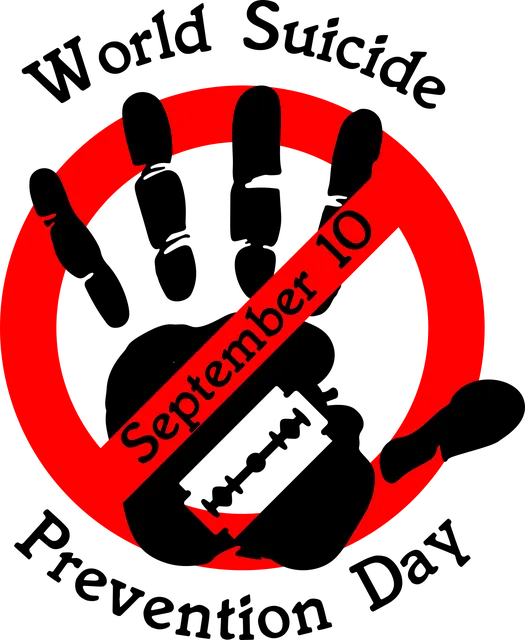The Kaiser Permanente mental health appointment center in Castle Rock utilizes self-assessment tools as a powerful resource for both individuals and healthcare providers, promoting proactive emotional well-being management. These tools, tailored to diverse needs, are integrated into holistic coaching programs that offer stress management strategies and personalized guidance. By collaborating with the community, the center develops culturally sensitive Mental Wellness Journaling Exercises and coaching programs, fostering open conversations about mental health and significantly enhancing the mental wellness landscape of Castle Rock.
Mental wellness self-assessment tools play a pivotal role in enhancing access to mental healthcare. With increasing recognition of mental health as a community priority, these tools democratize support, enabling individuals to proactively manage their well-being. This article explores the development of such tools, drawing insights from innovative models like the Kaiser Permanente Mental Health Appointment Center. We delve into key considerations for effectiveness and highlight successful community engagement strategies, exemplified by Castle Rock’s inclusive approach.
- Understanding the Need for Self-Assessment Tools in Mental Health Care
- The Kaiser Permanente Mental Health Appointment Center Approach
- Developing Effective Self-Assessment Tools: Key Considerations
- Integrating and Promoting Castle Rock Community Engagement
Understanding the Need for Self-Assessment Tools in Mental Health Care

In today’s fast-paced world, mental health care is more important than ever, and self-assessment tools play a crucial role in this domain. Organizations like Kaiser Permanente Mental Health Appointment Centers in Castle Rock recognize the need for accessible and effective methods to evaluate and improve mental wellness. These tools serve as gateways to personal understanding and are essential resources for both individuals seeking support and healthcare providers delivering care.
By utilizing self-assessment, individuals can proactively manage their emotional well-being, identifying potential issues early on. Moreover, these assessments foster cultural competency among healthcare providers, enabling them to offer tailored services that address diverse needs. Public awareness campaigns development around mental health often incorporates such tools to educate and encourage open conversations about emotional intelligence, ultimately revolutionizing the way communities approach mental wellness.
The Kaiser Permanente Mental Health Appointment Center Approach

The Kaiser Permanente Mental Health Appointment Center Approach in Castle Rock offers a structured and comprehensive method for self-assessing mental wellness. This center leverages evidence-based practices to provide individuals with tools tailored to their unique needs, focusing on both acute and long-term emotional well-being promotion techniques. The process begins with an initial assessment that identifies key areas of concern, followed by personalized guidance on stress management strategies and mental wellness journaling exercises.
By combining professional expertise with accessible resources, the Kaiser Permanente model facilitates a holistic understanding of one’s mental health. This approach ensures individuals not only gain insights into their emotional states but also develop practical skills to enhance their overall mental wellness. The center’s commitment to evidence-based practices and personalized care sets it apart, making it a go-to resource for those seeking to improve and maintain their psychological well-being.
Developing Effective Self-Assessment Tools: Key Considerations

Developing effective self-assessment tools is a multifaceted process that requires careful consideration to accurately gauge and improve mental wellness. At Castle Rock’s Kaiser Permanente mental health appointment center, experts emphasize the importance of tailoring assessments to individual needs, as one-size-fits-all approaches can be ineffective. Incorporating diverse metrics such as symptom tracking, emotional well-being promotion techniques, and burnout prevention strategies for healthcare providers is crucial. These tools should not only identify risks but also offer actionable insights tailored to each person’s unique circumstances.
Moreover, the integration of user-friendly interfaces and reliable data security measures enhances participant engagement and encourages consistent use. By combining these elements, mental wellness coaching programs can be developed that empower individuals to take control of their mental health while providing healthcare providers with valuable data for informed decision-making and tailored interventions. This holistic approach aligns with the broader goals of promoting emotional well-being and fostering supportive environments within healthcare settings, such as those offered at Castle Rock’s Kaiser Permanente.
Integrating and Promoting Castle Rock Community Engagement

In developing mental wellness self-assessment tools, integrating and promoting community engagement is a vital step. Kaiser Permanente’s mental health appointment center in Castle Rock serves as a model for fostering connections within local communities. By collaborating with local organizations, schools, and businesses, the center offers Mental Wellness Journaling Exercise Guidance tailored to the unique needs of Castle Rock residents. This approach ensures that the self-assessment tools not only meet but exceed cultural and social contexts, enhancing their effectiveness and accessibility.
The center’s commitment to community engagement extends to the development of Mental Wellness Coaching Programs, focusing on building resilience among individuals and groups. These programs, designed in collaboration with community leaders, provide a supportive environment where residents can learn from each other while navigating mental health challenges. By embracing at-risk populations and promoting open conversations about mental wellness, Kaiser Permanente’s Castle Rock location sets an example for inclusive and holistic mental healthcare delivery, ultimately strengthening the overall mental wellness landscape of the community.
Mental wellness self-assessment tools play a pivotal role in enhancing access to mental healthcare, particularly in communities like Castle Rock. By adopting approaches such as the Kaiser Permanente Mental Health Appointment Center strategy, we can develop effective tools that empower individuals to take charge of their mental well-being. Through key considerations focusing on accuracy, accessibility, and cultural sensitivity, these tools can bridge the gap between seeking help and receiving adequate care. Engaging community members in the development and promotion of these resources ensures relevance and acceptance, fostering a supportive environment for improved mental health outcomes in Castle Rock and beyond.






